Cannabis has been associated with sleeping for decades. The typical weed experience is thought to involve getting hungry and then getting sleepy. While many consumers do experience such things, does everyone? Well, it turns out the answer is complicated, as we’ll discover here today.
There are practical considerations that might just make the difference between a good night’s sleep or not. Discover the impacts of cannabis on sleep, including concerns around dosage, strain, timing, and more.
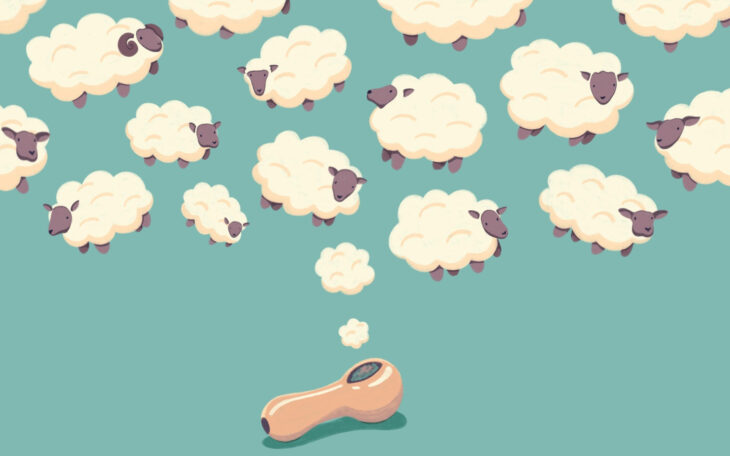
Source: leafly.com
Contents
Does Cannabis Help you Get Better Sleep?
Getting good sleep is hard. 1 in 3 people aged 35-64 is not getting enough sleep in Canada. Older and younger adults are doing only slightly better, 1 in 4. Overall, the results around sleep are far from optimistic. Roughly half of all Canadian adults have trouble falling asleep or staying asleep. Standard tips for improving sleep quality include:
- Avoiding alcohol and caffeine before bed
- Reduce the noise and light in your bedroom environment
- Get regular exercise
- Maintain a regular sleep schedule
- Practice relaxation and mindfulness
These are all fantastic tips that everyone should take to heart. While these tips help, many of us need more. This leads to the central question, does cannabis help you get better sleep? Let’s find out! Speaking of cannabis check out this site weedme.ca for high-quality cannabis.
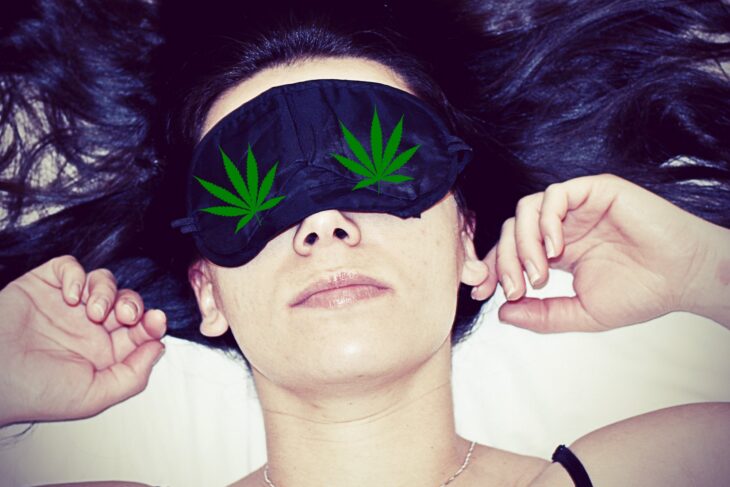
Source: villemagazine.com
Cannabis Sleep Research
Research on this topic is still in its infancy. Various smaller studies have explored the role of cannabis in sleep. The methodologies used and research findings are not yet as rigorous as we need to provide practical answers. In general, these studies have found mixed results on the benefits of using cannabis to promote better sleep (Babson et al., 2017).
Focusing on THC, the evidence indicates that it does undoubtedly help people fall asleep. One opposite problem is the potential for THC to impair sleep quality. In other words, THC can help you fall asleep but may not help you feel fully rested the following morning (Babson et al., 2017).
When it comes to sleep, many diseases and syndromes can get in the way. Medical cannabis research can help us understand the sleep experience of those suffering from certain medical conditions.
For example, researchers explored the role of medical cannabis usage in patients who have PTSD. They found that people who had high scores on their PTSD diagnosis were more likely to use cannabis to improve their sleep. Getting better sleep was one of the primary reasons for medical cannabis usage in this population (Bonn-Miller et al., 2014).
Finally, a recent study looking into expectancies found some fantastic results. These researchers found that consumer expectations appeared to impact the positive role of cannabis in their lives. In other words, if you expect cannabis to help you sleep, it may be more likely to do so (Altman et al., 2019).
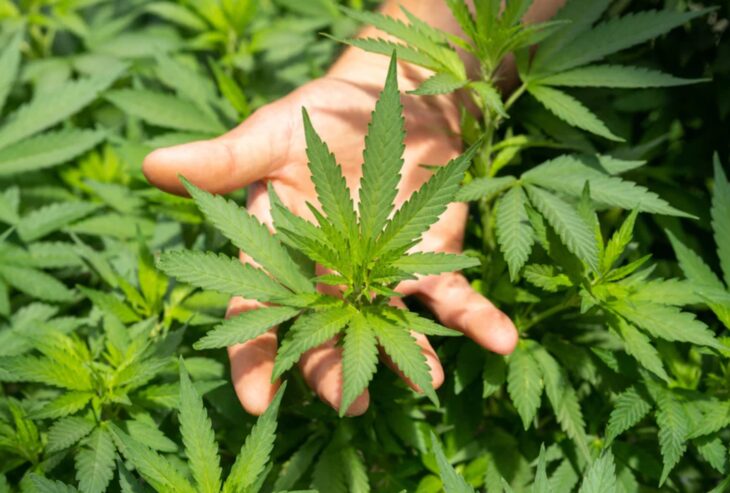
Source: unsplash.com
Dosage
A critical practical consideration is the size of your dose. A little bit of cannabis may help you sleep, while a more significant quantity can cause some mind-racing. The standard advice of start low and go slow is undoubtedly applicable to using cannabis before bedtime.
There is a lot of personal testing required to get things right here. Start with a small amount of cannabis and wait up to 30 minutes to assess the effects. With experience, you’ll determine the best dose to help you get ready for bedtime. The closer you get to the time you want to sleep, the more you should reduce your dosage (in general).
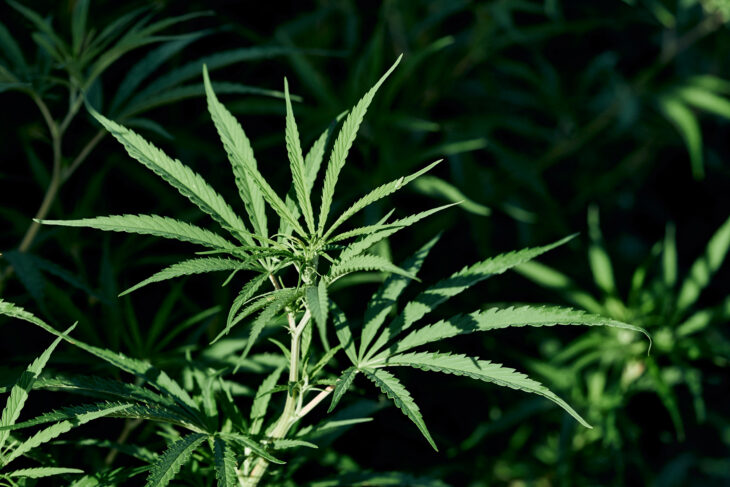
Source: squarespace-cdn.com
Timing
Timing your cannabis dosage is also important. Smoking cannabis in the morning will not help you sleep later that night. On the other hand, a bit of weed before bed will have a direct role in your ability to get to sleep. But, you may not want to smoke right before bed. Everyone is different here, however.
Once again, test and assess. Many people find the best timing to be in the 1-3 hours before bed. This gives you time to enjoy the high and perform some relaxing activities. As the effects wane from their peak, this is when many Canadians start to get sleepy. People will react differently, but you can find that sweet spot to get you all ready for bed with practice.
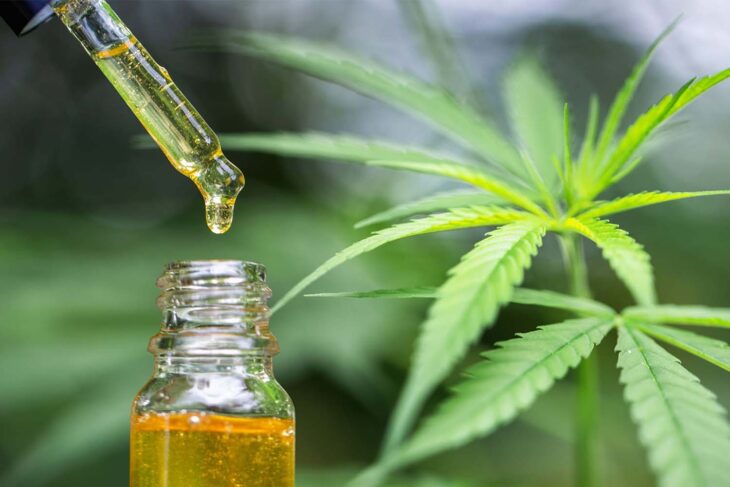
Source: we-heart.com
Strains
Certain strains may help you sleep better than others. Generally, consumers report that sativa strains are more likely to stimulate the mind. This is why sativa strains are considered to produce an energizing and creativity-stimulating daytime high. On the other hand, indica strains are well-known for their ability to produce sedation. Feeling your muscles melt into the couch during what is called ‘couch-lock’ is a stereotypical indica experience.
There are plenty of indica-dominant strains available to consumers. When buying an indica strain to help with sleep, do not worry about finding the highest potency. As we learned today, a lower-THC strain may help you sleep better than high-THC strains.
If you don’t want to buy cannabis, you can also grow weed indoors yourself. While it is not effortless to grow weed indoors, it is a cost-effective and rewarding activity. The indica strains that you grow yourself may not have the highest potency, but they can be perfect for bedtime consumption.
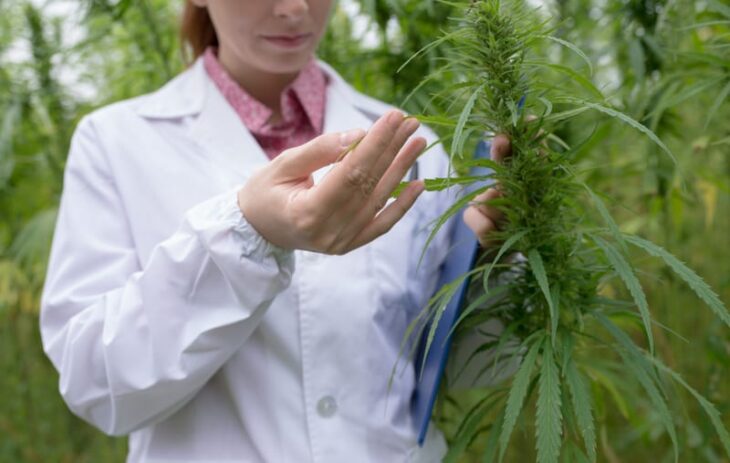
Source: sleepreviewmag.com
Conclusion
Overall, yes, you can use cannabis to help you get a good night’s sleep. That said, there are several key factors we discussed here today. The research is not clear, as several studies have found mixed results. Consumers of cannabis report somewhat different experiences than is captured in the research. We also saw that specific medical populations might benefit more than others or require larger doses.
Remember to start low and go slow, as more is often better when it comes to sleep. Treat your pursuit of better sleep scientifically. Test, assess, and reassess based on experience. Certain strains may work better for you than others, though it’ll likely be an indica strain. Often less is more, but the THC dosage you need will depend on you. Finally, the same goes for timing your final cannabis dose before bed.
Citations
Altman, B., Mian, M., Ueno, L., & Earleywine, M. (2024) Examining and validating the factor structure of the cannabis-associated problems questionnaire. Journal of Substance Use 26:3, pages 292-298. Retrieved from: https://www.tandfonline.com/doi/citedby/10.1080/02791072.2019.1643053?scroll=top&needAccess=true.
Babson, K.A., Sottile, J. & Morabito, D. Cannabis, Cannabinoids, and Sleep: a Review of the Literature (2017). Curr Psychiatry Rep 19, 23. https://doi.org/10.1007/s11920-017-0775-9.
Bonn-Miller, M., Babson, K., Vandrey, R. (2014). Using cannabis to help you sleep: Heightened frequency of medical cannabis use among those with PTSD. Drug and Alcohol Dependence 136:162-165. DOI:10.1016/j.drugalcdep.2013.12.008.
